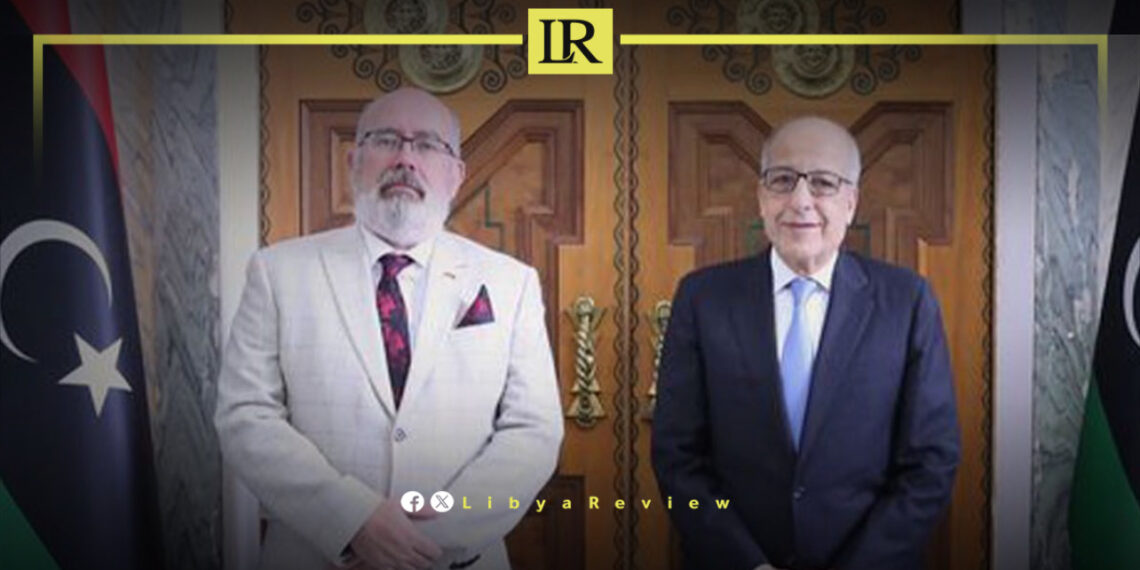On Thursday, the British Ambassador to Libya, Martin Longden, affirmed the United Kingdom’s (UK) support for the Libyan Central Bank’s initiatives aimed at enhancing financial sustainability and stabilizing the nation. During a meeting with Al Siddik Al Kabir, Governor of the Central Bank of Libya, Ambassador Longden praised the bank’s crucial role in maintaining the stability of the Libyan state.
The meeting, detailed by the Libyan Central Bank’s media office, covered several strategic financial measures.
Key topics included the ongoing unification of the Central Bank, which has been split between factions based in Tripoli and Benghazi since the 2011 political upheaval. Discussions also focused on the withdrawal of the fifty-dinar note from circulation, the implementation of fees on foreign currency sales to stabilize exchange rates, the establishment of a unified budget, and the strategic management of fuel resources and subsidy reforms.
These measures are part of broader efforts to consolidate Libya’s banking operations and stabilize its currency, which are essential for the country’s economic recovery. The introduction of a fee on foreign currency transactions is specifically designed to curb the black market, while unified budgetary approaches aim to minimize regional economic disparities.
Ambassador Longden’s endorsement highlights the importance of international collaboration in supporting Libya as it navigates complex financial reforms amidst ongoing political challenges. The UK’s backing not only emphasizes the global community’s interest in a stable and prosperous Libya but also showcases the critical role of diplomatic engagement in advancing significant financial reforms.
As Libya continues to strive for economic stability, support from international partners like the UK is crucial. These collaborative efforts are vital not just for Libya’s recovery but also for ensuring the stability of the entire North African region, which has been impacted by Libya’s years of turmoil. The commitment from Libya’s financial leadership, bolstered by international support, is key to achieving lasting economic stability and growth.


